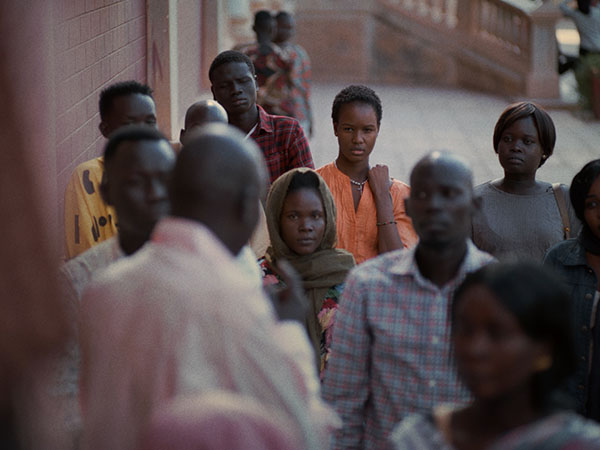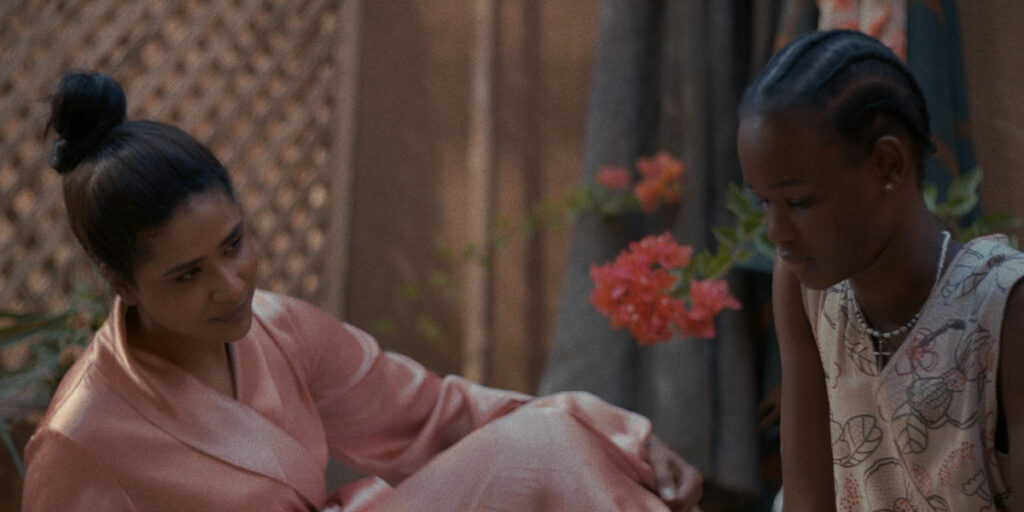Goodbye Julia ’s commitment to finding the personal in the political bolsters its plea for peace in the ongoing Sudan-South Sudan conflict.
Following decades of conflict between Sudan and South Sudan, the citizens of South Sudan gained independence from Sudan with a near-99% majority vote. Although the process was peaceful, the relationship between Sudan and the new country is still fraught, and from that ongoing schism comes Mohamed Kordafani’s film Goodbye Julia. A penitent work in its attitude towards Sudan’s role in the conflict, Kordofani’s film, the first Sudanese submission to the Cannes Film Festival’s Un Certain Regard section and winner of the Freedom Prize earlier this week, is a plea for peace wrapped in a character drama.
Mona (Eiman Yousif) and Akram (Nazar Gomaa) are a tenuously satisfied couple living comfortably in Khartoum when Southern rioters disrupt their peace. The riot ends and a neighbor’s car is burnt; within minutes he’s showing Akram how to use his newly purchased Russian rifle. This is the first impressive thing about Kordafani’s film: he begins by demonstrating the lives of the privileged while sympathizing with the protesters. Though property is destroyed, it’s the threat of actual bodily harm – the gun demonstration shot with Akram and the neighbor’s backs to the audience, both blocked at a distance from the camera – that punctuates the opening of the film and gives his bourgeois protagonists an air of menace.
The threat is soon answered when Akram slays one of the protestors, an act which is hidden from the dead man’s wife, Julia (Siran Riak). Mona, guilt-ridden over the death, quickly employs the widow, and the two create a tenuous friendship. The body of Goodbye Julia is a story about force and separation, how the former seeks and fails to stem the latter. The relationship between the two women is built on Mona’s guilt and, crucially, Julia’s economic desperation. Kordofani’s script gives both actresses ample room to study each other, and the strongest moments underline just how separate they are, how Mona’s idleness harms Julia while she fools herself into thinking her money is enough to remedy the situation.

The allegorical nature of this central relationship is strong, and Goodbye Julia could live entirely on its success, but there are a couple of faltering late-film subplots which try to deepen the two main characters beyond their relationship to each other. Frequently the strictness of allegory can be dramatically limiting – the fatalism of a given outcome or a clear sympathy can stymie a narrative or a film. I think Kordofani understands this, but the tension and violence between Sudan and South Sudan, that failing connection, is so embodied by Yousif and Riak, that he strains when he empathizes with Mona and Julia alike.
I’m reminded in many ways of Armageddon Time, James Gray’s 2022 film about a young Jewish boy who betrays his Black friend; there is an imbalance in perspective between oppressor and oppressed in both films. For Gray, that imbalance is sickening: he feels it and resents it. Kordofani I’m not as sure about- there’s a tendency nestled in the slackened middle to forgive Mona which stifles conflict rather than adds to it.
Kordofani’s commitment to character shows the makings of a strong dramatist, and Goodbye Julia is a valuable and well-intentioned political allegory for a pressing and difficult situation.
Goodbye Julia had its world premiere in the Un Certain Regard strand of the 2023 Cannes Film Festival, where it won the Freedom Prize.

